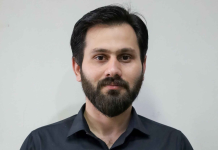By Qamar Bashir
The world watched in shock as Israeli missiles struck the heart of Damascus on July 16, targeting the Ministry of Defense and other critical infrastructure. The timing, scale, and intent of the attack raised urgent questions. Officially, Israeli leaders claimed the strikes were a protective measure for the Druze community in southern Syria amid intensifying clashes with Bedouin tribes. But the broader picture tells a story not just of protection, but of preemptive aggression, regional dominance, and a disturbing disregard for international sovereignty.
This attack came on the heels of quiet diplomatic efforts between Israel and Syria—efforts that had sparked cautious optimism for a historic nonaggression pact. Yet, the Israeli strikes shattered that momentum. According to Israeli historian Itamar Rabinovich, who once led peace talks with Syria, the move reflects a bizarre blend of post-October 7 paranoia and newfound confidence following Israel’s military actions in Lebanon and against Iran.
Indeed, Israel’s military doctrine seems to have shifted dramatically since Hamas’s 2023 surprise assault. Instead of pursuing diplomacy, Israel has shown a clear preference for force—even at the cost of sabotaging peace overtures. Rabinovich aptly described it as “a very strange mixture of trauma and triumph.”
The immediate spark for the latest strikes was Syria’s deployment of troops to Suwayda, a southern province home to a large Druze population. Fighting had erupted there between Druze militias and Bedouin tribes, with Syria’s military intervening to restore order. For Israel, this raised two concerns: a potential threat near its border, and unrest among its own Druze citizens—an influential minority with deep ties to the Israeli state.
The Druze, an offshoot Islamic sect with a population of about one million, are spread across Syria, Israel, and Lebanon. In Israel, nearly 150,000 Druze live under its governance, including 20,000 in the Golan Heights, annexed by Israel in 1981. Unlike other Arab groups in Israel, the Druze serve in the Israeli military, often reaching high ranks. Their loyalty has forged a unique bond with the Jewish majority—one that Prime Minister Netanyahu could not afford to alienate.
This week, when disturbing footage of Druze men being humiliated by Islamist fighters circulated online, Israeli Druze reacted with fury. Protests erupted, roads were blocked, and around 1,000 Druze men reportedly crossed into Syria to defend their kin. Netanyahu, aware of the domestic political pressure, invoked a dual doctrine: “Demilitarization of the region south of Damascus” and “protection of the brothers of our brothers, the Druze.”
But while the justification was rooted in the protection of a minority, the execution was far from localized. Israel did not limit its action to Suwayda or the tribal conflict zone. Instead, it struck deep into Damascus—far from the scene of the clashes—leveling key government buildings including the Ministry of Defense. Footage aired live showed Syrian news anchors diving for cover as missiles hit the capital. At least three people were killed in these strikes.
Syrian President Ahmed al-Sharaa, who rose to power after the fall of Bashar al-Assad in an Islamist-led insurgency, faced a fateful choice: escalate into full-blown war or prioritize national unity and civilian protection. He chose the latter, declaring a ceasefire and ordering the military’s withdrawal from Suwayda. In a national address, he condemned Israel’s actions as a bid to “sow chaos” and “divide the Syrian people.”
A temporary truce was brokered with U.S. involvement. Secretary of State Marco Rubio described the Syria-Israel tensions as a “misunderstanding” and said Washington had mediated an agreement among all parties. The ceasefire terms included a halt to all military operations and the creation of a monitoring committee led by Druze leaders. Yet, the truce remains fragile. One prominent Druze cleric, Hikmat al-Hijri, rejected it outright and called for continued resistance.
From a regional perspective, Israel’s strike is not isolated. It mirrors a pattern: attacks on Iran, Lebanon, and Syria—often justified on national security grounds, yet executed with overwhelming force and scant regard for sovereignty. All of these assaults, while publicly condemned by the U.S. and its allies, are often carried out with tacit approval or coordination with American security and political leadership. Netanyahu’s close ties with Washington remain unshaken, bolstered by shared intelligence, joint military exercises, and mutual rhetoric.
During a recent meeting between Netanyahu and Rubio and Hegseth, both sides praised the strength of Israeli-American military cooperation. This alliance was vividly demonstrated during the joint Israeli-American strikes on Iran’s Fordow nuclear site earlier this year and the subsequent neutralization of Iranian missile defenses. These attacks, though illegal under international law, were framed as preemptive defense.
Syria, like Iran and Lebanon before it, opted not to retaliate militarily. Instead, it chose diplomacy, prioritizing civilian safety and national integrity. The restraint shown by Damascus highlights a troubling contrast: while Israel behaves with unchecked aggression, often shielded by U.S. support, its neighbors—no matter how bruised—seek de-escalation over escalation.
But this asymmetry cannot last forever. Israeli belligerence, once tolerated, is now under increasing global scrutiny. Countries that had normalized relations with Israel are beginning to reconsider. The international community, long silent, is finding its voice. From European capitals to U.N. chambers, criticism of Israel’s policies is mounting. Human rights organizations, media outlets, and civic movements have begun imposing informal sanctions—boycotts, divestments, and calls to isolate Israel diplomatically and economically.
Public opinion in the West, especially in the U.S. and Europe, has shifted dramatically. No longer is support for Israel unconditional. The atrocities in Gaza, the disregard for Syrian sovereignty, and the documented humiliation of civilians have eroded Israel’s moral standing. As these trends accelerate, it is increasingly ordinary Jewish citizens—not the political architects of war—who face the backlash.
That, perhaps, is the greatest tragedy of Netanyahu’s militaristic adventurism. In seeking to project power and assert dominance, his government has isolated Israel and endangered its people. A state that once sought peace and legitimacy is now seen by many as a pariah—a state that tears down rather than builds up.
Whether this path changes depends not only on Israel’s leadership but also on whether Washington continues to provide political and military cover. Until then, the region remains caught in a cycle of provocation, restraint, and unhealed wounds—each new strike a blow not just to buildings, but to the fragile hope of peace.
By Qamar Bashir
Press Secretary to the President (Rtd)
Former Press Minister, Embassy of Pakistan to France
Former MD, SRBC | Macomb, Michigan, USA

















